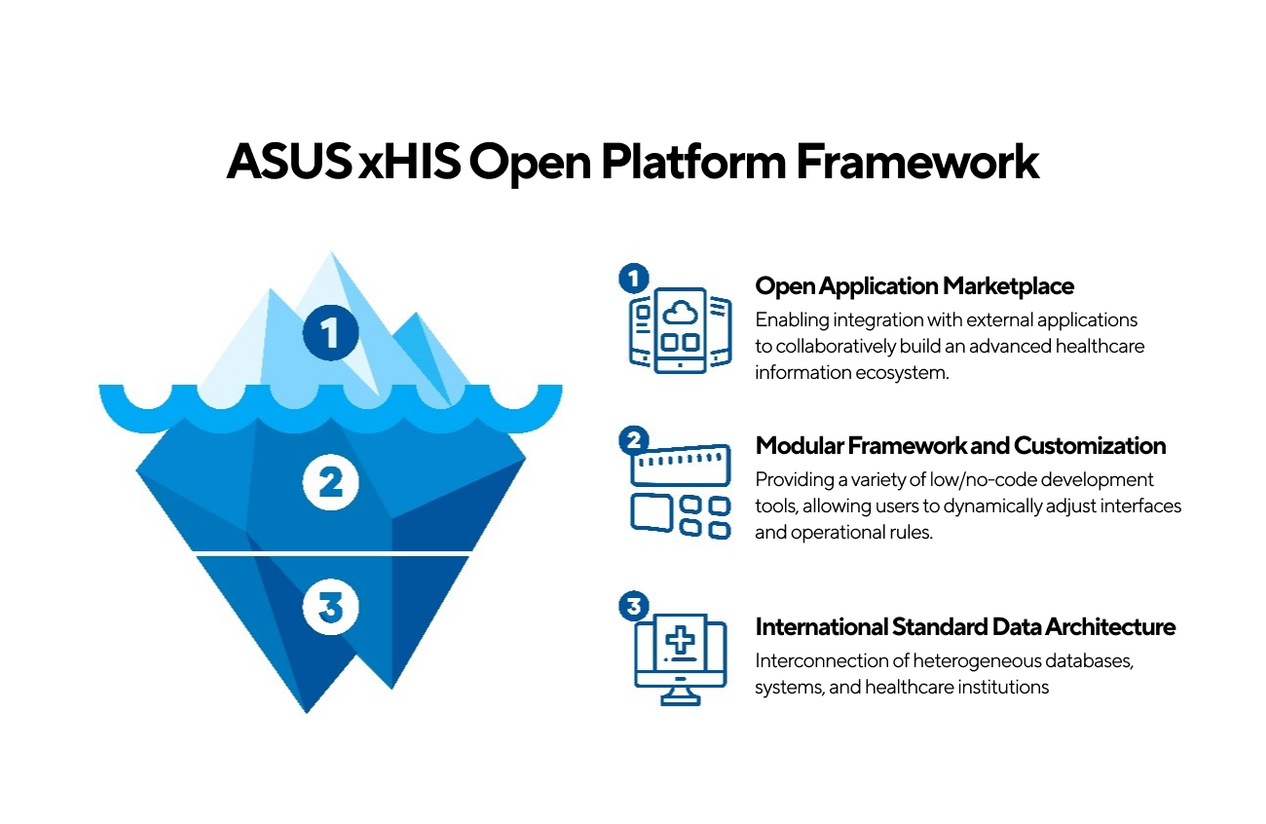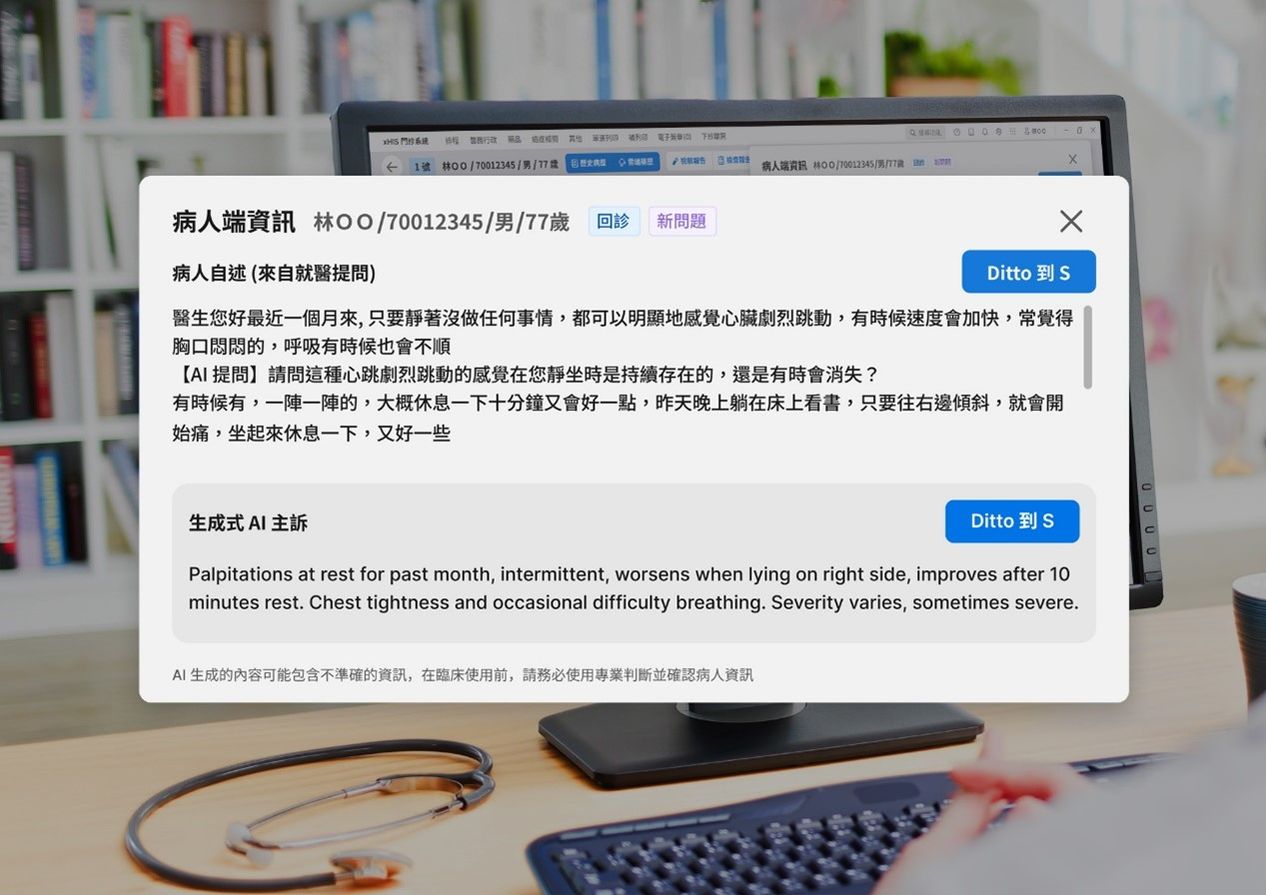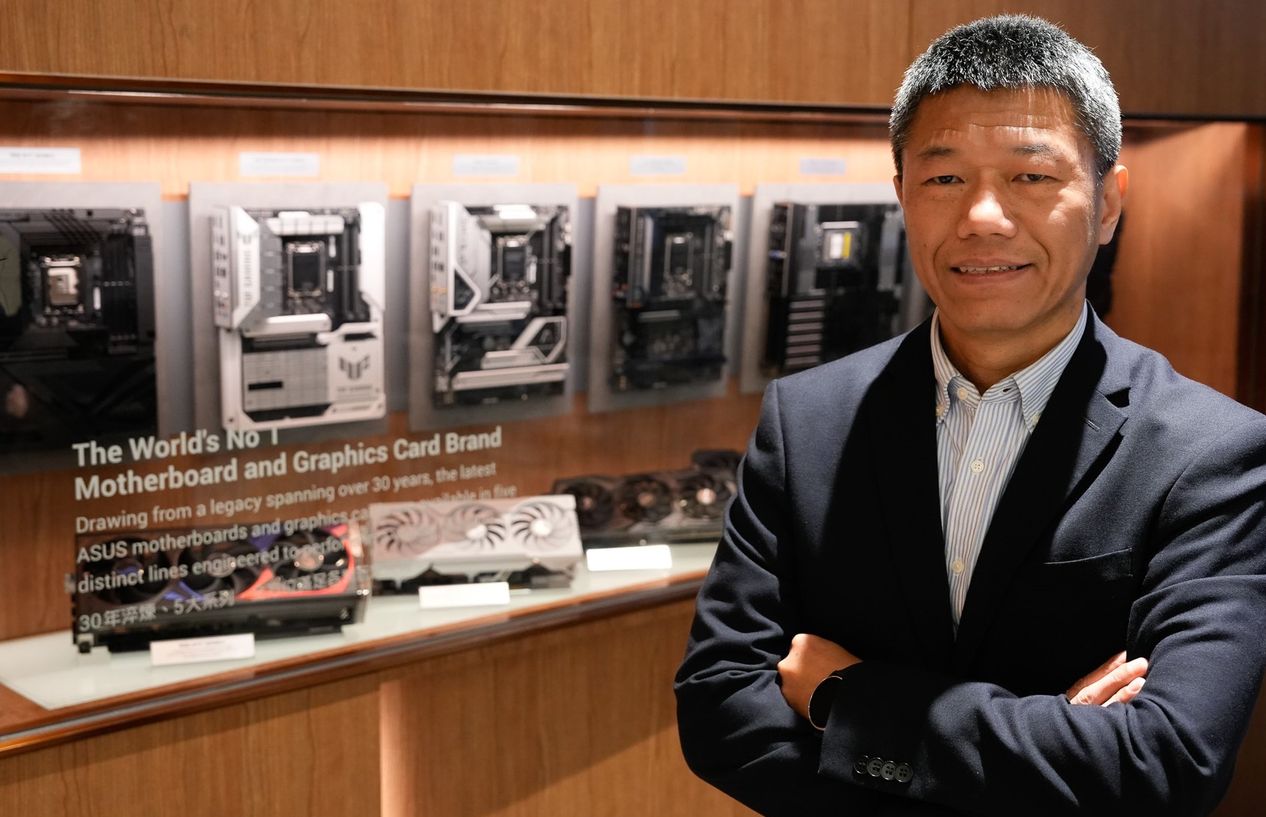Generative AI (Gen AI) is having a significant impact across almost every industry. Nowhere is this more true than in the area of healthcare, where Gen AI is enhancing the quality of care and efficiency, as well as adding value to the personalized user experience.
We are now fully in the era of Smart Healthcare 4.0. This involves the use of advanced technologies like AI, IoT, and big data to improve healthcare delivery. The goal is to provide more personalized, efficient, and effective care by connecting patients, doctors, and devices. As a leading technology company, it is no surprise that ASUS – with its Gen AI-supported healthcare products and services – is playing an important role in this healthcare revolution.
At ASUS, we currently leverage two forms of Gen AI for our healthcare products and services:
- Managed Gen AI services, such as OpenAI's ChatGPT and Anthropic’s Claude on AWS, which interact with users via a question-and-answer format to offer health advice and consultation.
- Open-source proprietary Gen AI models, a clinical AI assistant that provides different agents to assist patients and clinicians in improving clinical visit workflows. Pre-consulting agents assist patients in filling out their complete symptoms and reasons for the visit. Summarization agents provide patient health summaries and draft medical notes for clinicians. Recommendation agents provide recommended diagnosis coding and next-step interventions.
Creating the Future of Healthcare Cyber-Physical Systems
ASUS is investing heavily in AI to ensure we become a comprehensive AI enterprise. We now employ over 1,000 AI professionals to help integrate Gen AI into workflows and product services. The development of big data and Gen AI can optimize the digital transformation of hospitals, empowering them to provide greatly improved healthcare outcomes in the future.
Smart Healthcare Cyber-Physical Systems (CPS) are set to lead medical services into a new era that delivers stunning innovations which allow everyone to enjoy more comprehensive, personalized, precise, and efficient future healthcare. This perfectly aligns with the sentiments expressed by ASUS Chairman Jonney Shih: “Despite industry, despite segment, the customer’s satisfaction is always the most important thing.”
Building a Next-Generation Smart Healthcare Information Platform
Healthcare institutions and healthcare professionals today face a wide range of challenges, especially when it comes to implementing AI applications. Chief among these is a lack of reliable and integrated digital infrastructure. This has resulted in hospital administrators struggling with difficulties such as maintaining outdated systems, dealing with compatibility issues between their systems’ and external applications, and navigating non-uniform data specifications between hospitals. Add all of this together and it is easy to understand why the development and application of AI healthcare products can feel like a fool’s errand.
In 2020, to resolve these challenges and ensure the continuous upgrading of Taiwan's next-generation digital medical information services, ASUS committed significant resources to construct the ASUS xHIS Next-Generation Smart Healthcare Information Platform (ASUS xHIS). The innovative platform focuses on open data integration and an AI-native environment. This allows systems, applications, and devices from various hospitals to communicate seamlessly, develop further AI applications, and create an open smart healthcare industry ecosystem.
The open platform architecture of the ASUS xHIS is made up of three layers:
- First Layer: An open application store that supports a developer ecosystem, connecting users' apps, wearable devices, home health measurement tools, and medical equipment from healthcare institutions. This promotes information integration, increases intelligent applications, and aims for a more personalized and precise healthcare experience.
- Second Layer: A customizable modular framework, including hybrid cloud technology, microservice architecture, and AI application data model analysis. This ensures smooth connectivity of application data from the first layer to the databases in the third layer. Additionally, its modular design and low-code/no-code tools, enable healthcare institutions to dynamically adjust interfaces and operational rules, such as allowing pop-up windows for clinical decision support (ex. Drug interaction alerts) to ensure patient safety.
- Third Layer: The establishment of internationally compliant standardized data formats, connecting disparate databases, systems, and healthcare institutions using consistent standards to break down data silos.
Leveraging Gen AI for Continuous Improvement
ASUS is transforming healthcare workflows by integrating Gen AI technology into multiple medical AI solutions. This innovation seeks to save time by streamlining documentation and note creation, reducing administrative burdens. It enhances productivity by freeing up more time for clinicians to focus on complex tasks and patient care, while also improving patient care outcomes through assistance in identifying potential anomalies, risk predictions, and recommendations.
ASUS Clinical AI Assistant offers a suite of capabilities leveraging LLMs (Large Language Models), including pre-consultation questionnaires, medical note drafting, EMR summarization, Anomaly detection, and smart recommendations, which are designed to enhance the efficiency and quality of care.
1. Pre-Consultation Questionnaire
To augment the pre-consultation process with dynamic, interactive questionnaires, this AI-driven tool generates follow-up questions based on patient-described issues, severity, duration, and related symptoms to help clinicians understand more about the patient’s condition before the visit. Physicians can also make necessary preparations such as refilling medication, placing diagnostic orders, etc. Additionally, customizable prompt templates allow healthcare providers to fine-tune note drafts, ensuring that the documentation process aligns with their specific needs and practice styles.
2. Medical Note Drafting
Medical Note Drafting automates the creation of various types of medical notes, such as SOAP (Subjective, Objective, Assessment, and Plan) notes and discharge summaries, using advanced AI-powered tools. With flexible, customizable templates, clinicians can tailor documentation to suit diverse clinical scenarios. By standardizing and accelerating the documentation process, the AI assistant significantly reduces preparation time, allowing healthcare professionals to focus more on patient care.
3. EMR Summarization
Gen AI is also able to extract key information from lengthy patient reports, allowing physicians to preview keywords before opening the patient history documentation. EMR summarization provides concise and dynamic overviews of patient information, including health history, vitals, and lab results. These summaries are presented in configurable templates tailored to the specific needs of different clinical roles and specialties. Beyond summarization, the tool also incorporates advanced capabilities such as anomaly detection and risk prediction, empowering clinicians to identify critical patient conditions quickly and efficiently.
4. Anomaly Detection & Smart Recommendations
Anomaly detection plays a pivotal role in bridging data insights and evidence-based data support to actionable guidance within the ASUS Clinical AI Assistant, providing a solid foundation for the smart recommendation feature. By leveraging advanced AI algorithms and LLM reasoning capabilities, the Anomaly Detection Agent identifies deviations in patient data, such as unusual trends in vital signs, abnormal lab results, or unexpected changes in a patient’s condition. These early warnings equip clinicians with critical insights that might otherwise go unnoticed, enabling proactive interventions and more informed care decisions. Building on these insights, the smart recommendation feature augments clinical workflows by offering potential diagnoses, a medical ICD-10 code, and an evidence-based intervention recommendation for treatment. Together, anomaly detection and smart recommendations create a seamless, data-driven approach that optimizes clinical decision-making and improves patient outcomes.
ASUS Clinical AI Assistant represents a transformative step forward in the healthcare industry, addressing longstanding challenges in efficiency, productivity, and patient care. By integrating advanced Gen AI technology and LLMs into critical workflows, this solution not only alleviates the administrative burdens faced by clinicians but also ensures more precise and standardized documentation. The ultimate goal is to reduce time spent on non-clinical tasks, allowing healthcare professionals to concentrate on complex medical decisions and direct patient interactions. Furthermore, the value of ASUS Clinical AI Assistant also lies in its ability to enhance care quality and outcomes in the patient care field. With intelligent tools for pre-consultation, medical note generation, EMR summarization, and smart recommendations, clinicians gain a deeper understanding of patient needs and potential risks. The solution’s support in identifying anomalies, predicting risks, and recommending treatments ensures timely and accurate interventions, eventually improving patient safety and satisfaction.
By bridging the gap between technological innovation and clinical excellence, ASUS Clinical AI Assistant redefines the healthcare experience. It empowers clinicians with the tools to deliver high-quality, patient-centered care while navigating the complexities of modern medicine with greater confidence and efficiency. This commitment to advancing healthcare workflows not only improves individual practices but also contributes to the broader goal of creating a more effective and compassionate healthcare system.
Please see here for Empowering Smart Healthcare with Generative AI, Part 2: The Patient’s Journey.

About ASUS
ASUS is a global technology leader that provides the world’s most innovative and intuitive devices, components, and solutions to deliver incredible experiences that enhance the lives of people everywhere. With its team of 5,000 in-house R&D experts, the company is world-renowned for continuously reimagining today’s technologies. Consistently ranked as one of Fortune’s World’s Most Admired Companies, ASUS is also committed to sustaining an incredible future. The goal is to create a net zero enterprise that helps drive the shift towards a circular economy, with a responsible supply chain creating shared value for every one of us.





